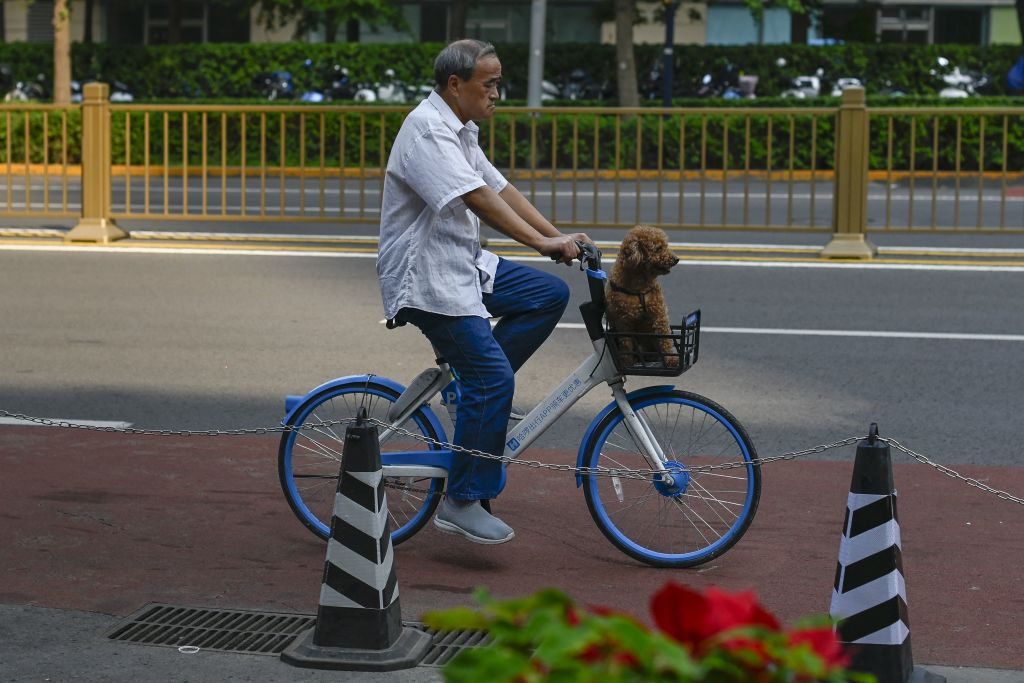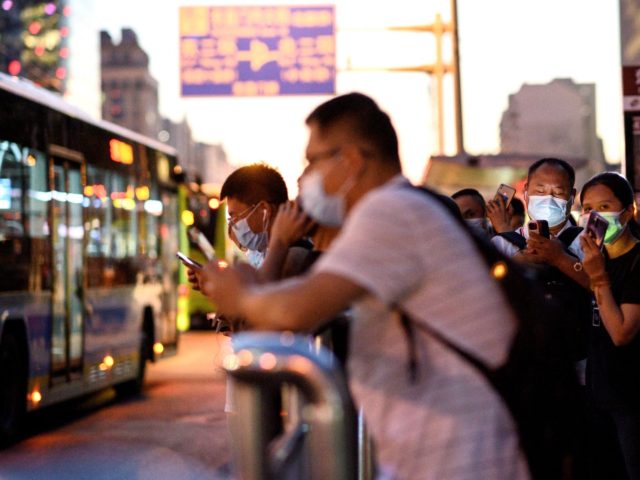Beijing’s government imposed new travel restrictions on the city on Wednesday — including canceling or limiting flights into the capital from parts of China deemed at high-risk for coronavirus — just 79 days before Beijing is set to host the 2022 Winter Olympics, Agence France-Press (AFP) reported.
Upon arrival in Beijing, all travelers must present a negative coronavirus test result produced no more than 48 hours prior to gain entry to the city. The rule went into effect on November 17 along with new limits on flights into the metropolis, which is home to nearly 21 million people.
“Flights from higher risk areas within China will be cancelled or limited to one a day at reduced capacity,” AFP reported, referring to areas deemed at risk for coronavirus by the Chinese federal government.
“Beijing is the capital and has strong regional and international connections. […] The virus must not be introduced into Beijing and it must not spread in Beijing,” Xu Hejian, a Beijing city spokesman, told reporters at a press conference on November 16.

An elderly man rides a sharing bicycle with his dog in a basket along an empty road in Beijing. (WANG ZHAO/AFP via Getty Images)
Xu’s comments on Tuesday suggested Beijing has not yet been affected by the nationwide outbreak of coronavirus sweeping through 21 Chinese provinces, regions, and municipalities since October 17. Beijing, which is administered directly by China’s federal government, was one of the first Chinese regions affected by the nation’s latest coronavirus epidemic.
The capital confirmed a new case of the virus on October 19 in a person who had recently returned to Beijing from Northwest China’s Gansu Province. Chinese health officials subsequently linked the infection to a Shanghai-based tour group that allegedly “spread the virus to seven provincial regions and cities as of Tuesday [October 19], including port cities in Inner Mongolia and [the] capital of Shaanxi Province [Xi’an],” the state-run Global Times reported at the time.
Beijing’s coronavirus caseload has surged since city health authorities detected the October 19 infection, with the city admitting to at least 50 new cases linked to the mid-October outbreak as of November 11.
“China’s capital is experiencing its worst Covid [coronavirus] outbreak in more than eight months,” Bloomberg reported on October 27.
Beijing’s worsening epidemic forced organizers of the 2021 Beijing Marathon to cancel the event on October 24, just one week before it was scheduled to take place.
There's a reason why the world is uniting to boycott the Communist Chinese Genocide Olympics. https://t.co/cUBW8wl5Vn
— Breitbart News (@BreitbartNews) August 31, 2021
The official website of the 2021 Beijing Marathon issued a statement saying the race was postponed “until further notice in order to prevent the risk of the epidemic spreading (and) effectively protect the health and safety of the majority of runners, staff, and residents.”
The marathon was expected to draw 30,000 participants to Beijing by its start date, October 31. The sporting event’s last-minute cancelation sparked speculation that Beijing may face difficulty hosting the 2022 Winter Olympics in the near future. The international sporting competition will be closed off to spectators outside China per coronavirus restrictions, though the event still promises to draw 2,900 athletes to Beijing from February 2 through February 20.
Beijing’s government has said it will require all Olympic athletes to be “fully vaccinated” against coronavirus “or face 21 days’ quarantine upon arrival. They will also be tested daily,” AFP detailed Wednesday.

COMMENTS
Please let us know if you're having issues with commenting.